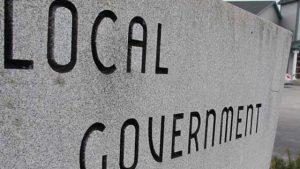The local government administration is crucial in the provision of adequate public goods to the enormous rural population. According to reports, over 70 per cent of Nigeria’s population reside in rural areas where the local government is constitutionally empowered and saddled with providing social amenities and public services such as water supply, primary healthcare, basic education, roads etc.

In any nation of the world, governance cannot be termed effective or efficient if the grassroots populace does not enjoy essential services. At the local government level, the government is brought closest on the masses. Hence, in the lowest form of assessment, local government administration is where governance can be measured and termed effective or ineffective as far as the delivery of public goods is concerned.
In a given society, the delivery of public services directly affects people’s quality of lives. More reason why governance in developed democratic systems is mainly on service delivery and local community engagement. However, Nigeria, like many African nations, are yet to embrace this tradition fully. The delivery of public services is still champion by the central government, while the local governments are more political appendages.
Given that the people at the grassroots are pretty far from direct access with the central government, it therefore implies that receiving adequate attention and involvement in decision making by citizens at the grassroots will be almost impossible or instead taken with levity. Hence, a poor local government leadership would continue to harm the effective delivery of public goods at the local government levels.
Nigeria has 774 local government areas, including the FCT; all the administrations are perceived to render little or no public goods. Since its inception, the state of public service delivery at the local government level has been nothing to write home about.
Citizens at the grassroots face various issues revolving around the lack of adequate public goods such as water supply, primary health care, security, basic education etc. Many communities now seek NGO to have water supply; they engage vigilante groups as their form of protection and also manage waste disposal themselves.
Another primary concern is the degree of corruption, lack of accountability among stakeholders and municipal officials, low citizen participation in issues that concern them as well as the weak financial viability of local governments due to local autonomy.
With the increasing population of people in the local government areas, it’s only through effective and efficient service delivery that the grassroots needs can be met.
Hence, Ymonitor currently embarks on a local government survey to assess the performances of local government administrations in Lagos. The survey is aimed at championing the needs for effective service delivery to citizens at the grassroots level.
To take the survey, please visit: Local Government Survey